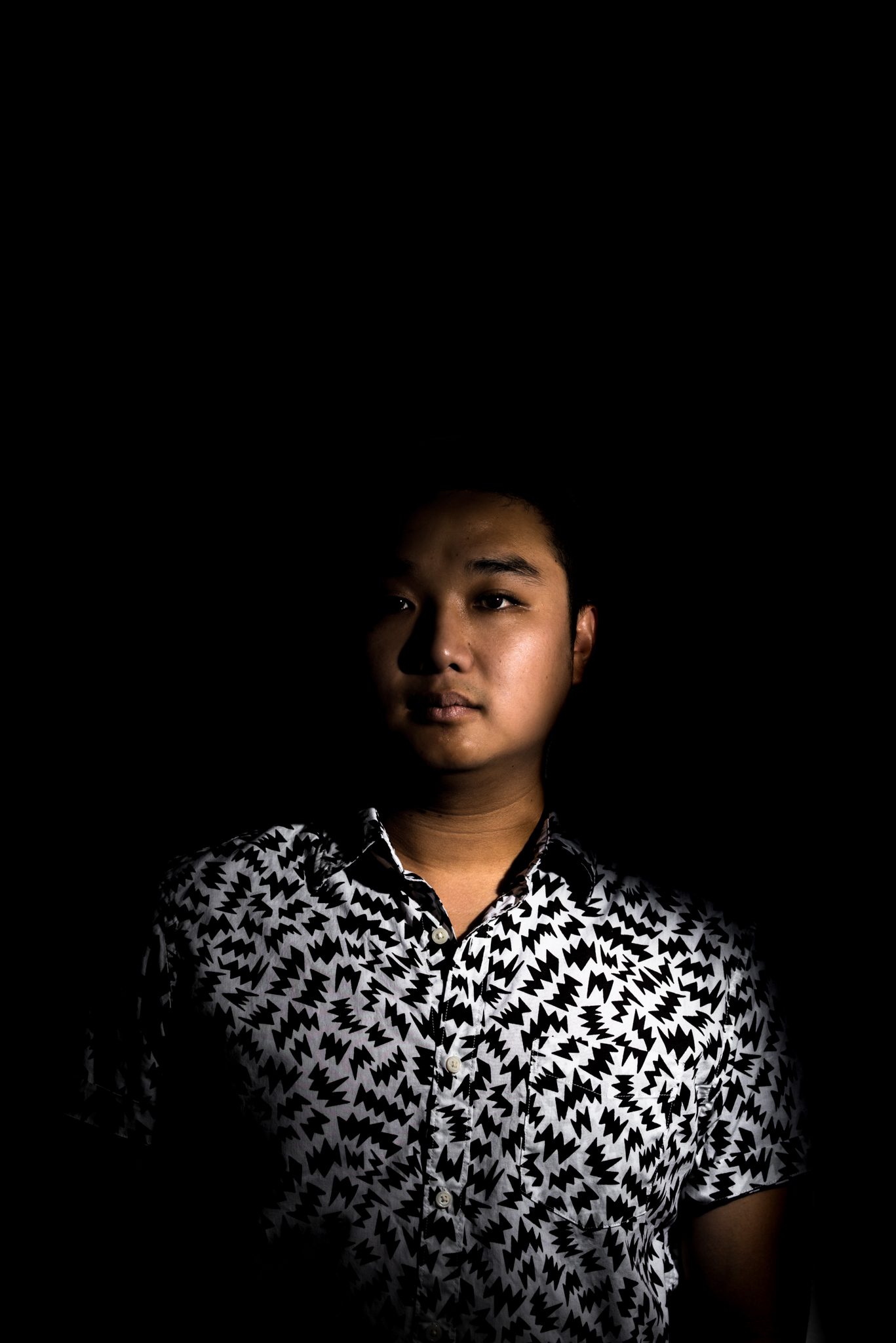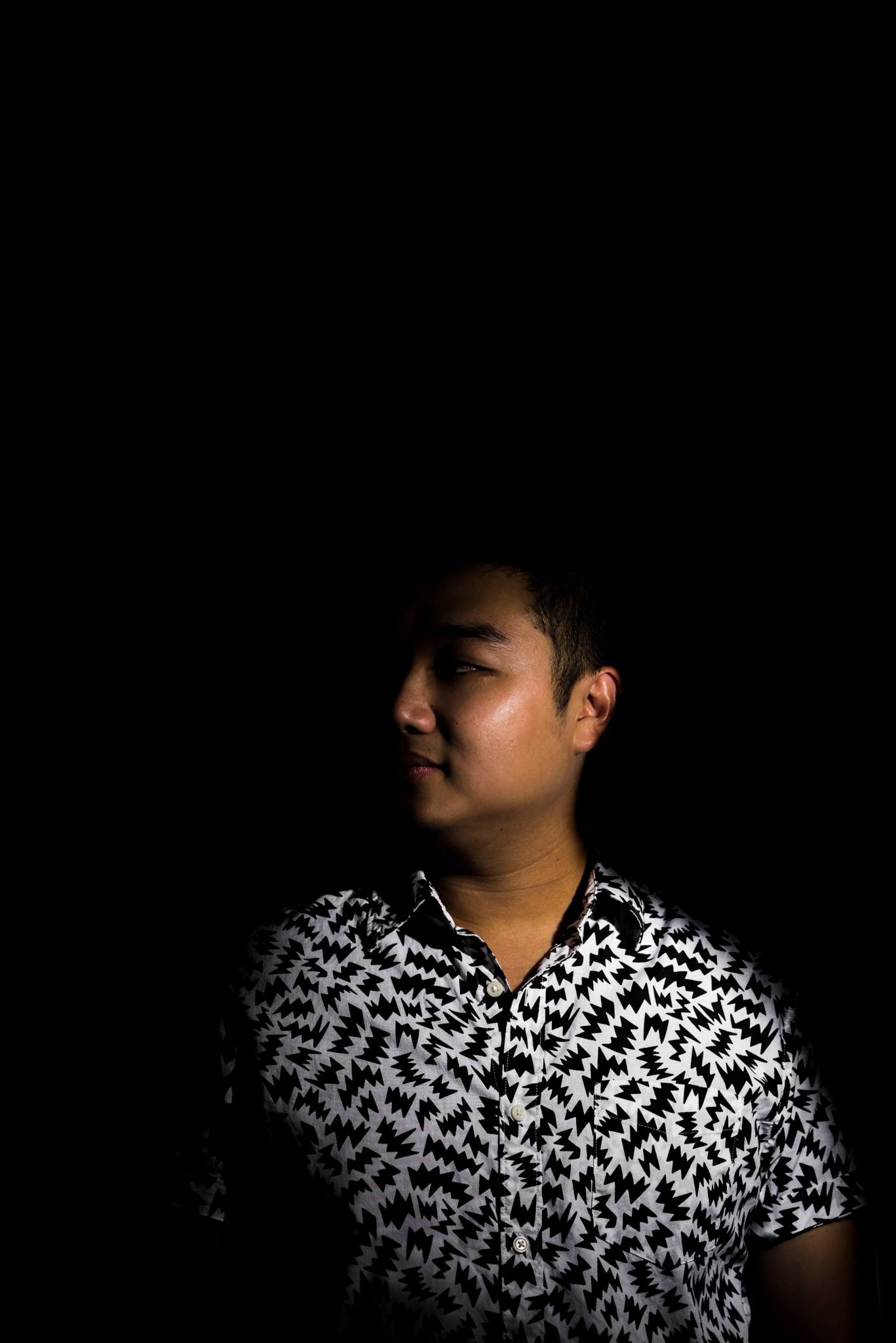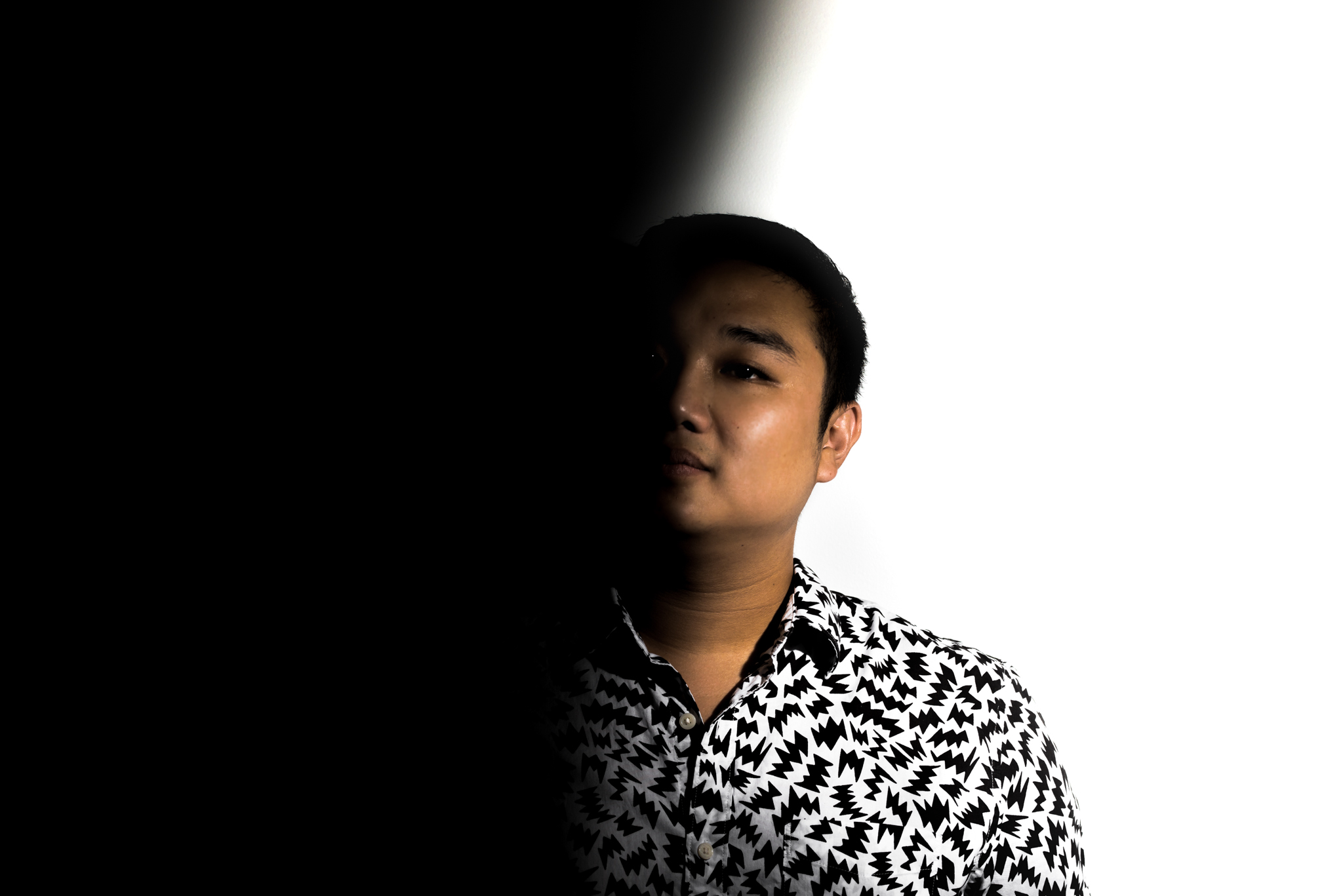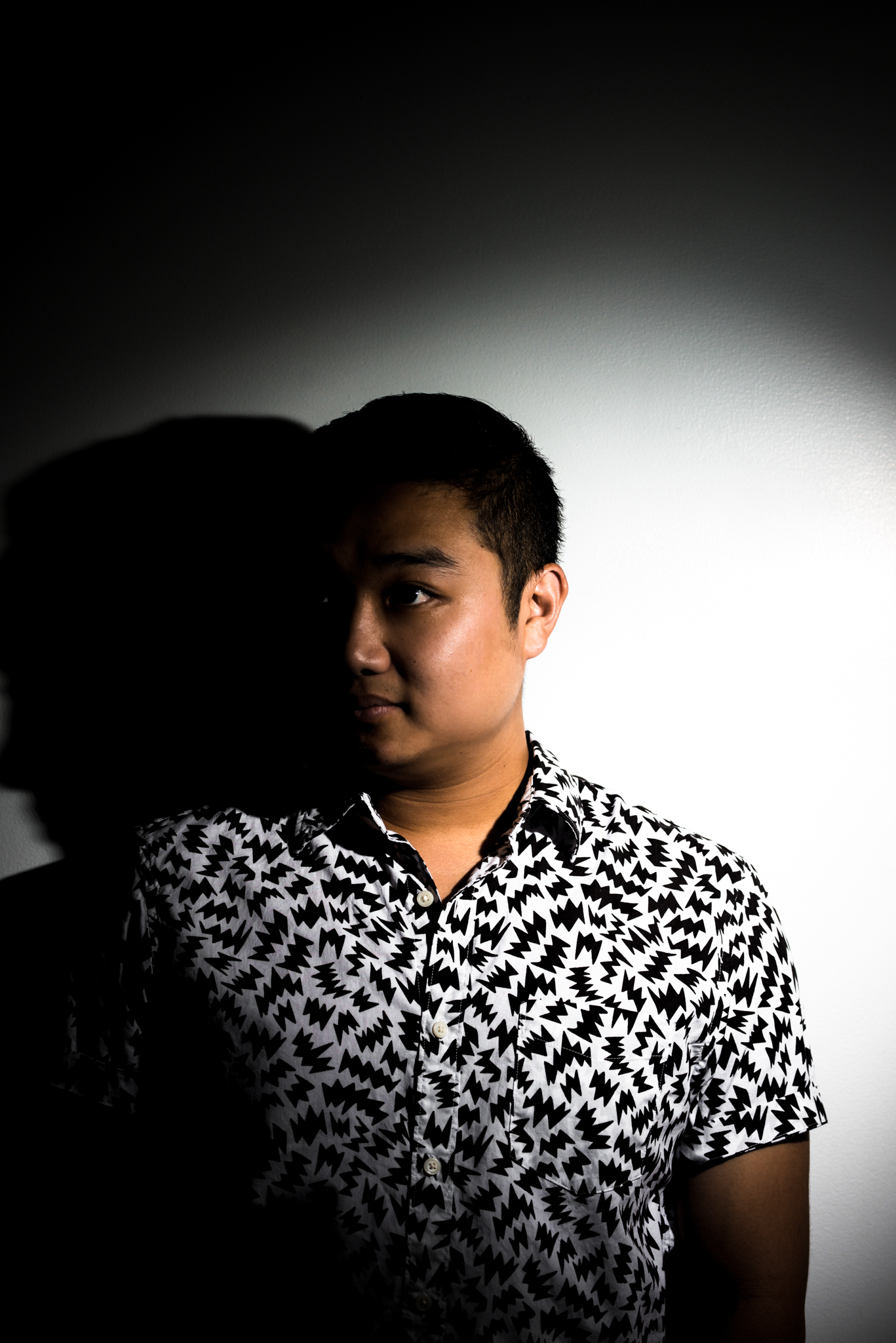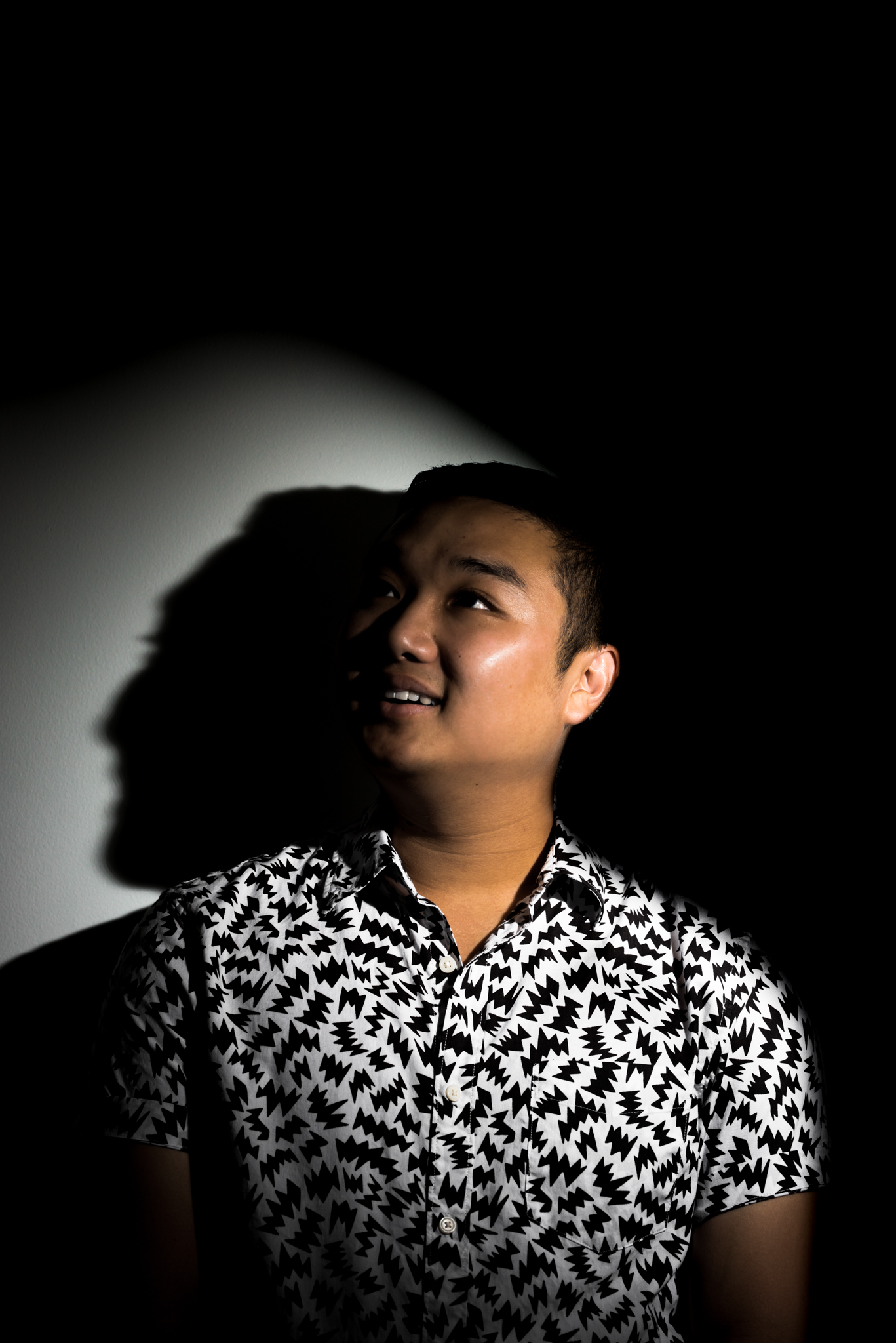The Other Side: Leo Wong
I've known Leo since college being both in advertising (and being my friend's freshman RA). Leo is currently kicking butt in the media world as he was recently honored on the 4A's "100 People Who Make Advertising Great." We had an amazing conversation on diversity in the workplace, media, and how the industry can make the world a better place to live in for everyone. I am super excited to share our lovely chat with you.
“My family isn’t huge so we have to cherish the ones who are around.”
Leo Wong is an Account Manager at Droga5.
On Growing Up as Asian American in California
I am originally from East Los Angeles, California and grew up in a predominately Asian and Latino neighborhood. [Growing up in LA] was interesting because I was used to seeing people like me, which I feel like isn't the case for a lot of Asian Americans. My high school was probably 45% Asian, 45% Latino, 10% everything else. It's not what everyone experiences. A lot of us did "Asian" things. In my neighborhood, our culture permeated throughout. I took it for granted until I went to college.
My mom immigrated here when she was in high school. She's from Hong Kong and came to Los Angeles around 14 or 15 and went to Santa Monica High School. It was a huge culture shock. She had a very different experience than I did. Race was a touchy feely subject back then. My dad went to college here. He's from Taishan (Toishan) area of China. My parents both grew up in the US during the most pivotal times of their lives so they're very Americanized, but still in touch with their culture. The rest of my family eventually immigrated over as well. For as long as I can remember all my family has been here in the US.
My mom was a fashion designer and went to art school so she was very open-minded and liberal. She understands creativity, which is something I feel Asian parents don't typically get. I was really lucky in that sense. My dad went the more traditional route and studied science for a long time. He ended up doing real estate. He's the polar opposite [of my mom]. Very structured, financially oriented, and conservative. When it came to college, my dad was like, "Why pay for a private school when you can get a good education in a UC?" My mom was more, "Apply where you feel it is right for you and study what you are passionate about. When it comes to money we'll figure it out." It was great to have that support network. Most of the parents in my neighborhood had my dad's mentality, which isn't surprising. It's stay local, live at home, save money, get the degree, put your head down and do work. It's how Asian culture trained people to be. But I feel like with the new generation it's more "do what you feel is right for you and what you want to do." My dad actually came around and it was because my grandma had an accident during my senior year of high school. It was in that moment that my dad realized life is too short. My family isn't huge so we have to cherish the ones who are around. Through that very unfortunate experience, it brought us closer together. We had that meeting about college after I committed to Syracuse University and I expected it to be an argument as it usually had been, but my dad ended up saying, "I will support you fully for your college tuition."
On Living Between Two Cultures
I never really thought much about it until now, how I have two different sides. I've really embraced my Asian roots since college. I've always been American like every other kid. Now I'm realizing more and more that I do appreciate my culture, especially going to Syracuse where [things belonging to my culture] were not easily accessible like they were back at home. Now [living in NYC] I make an effort to go to Chinatown once or twice every month to buy groceries, cut my hair, eat food. Thankfully I do speak the language because my parents forced me to go to Chinese school. I try to share my culture with other people, and I acknowledge that not everyone gets to experience it so I don't take it offensively. If people show interest, I will gladly share my culture with them. Ultimately I've come to embrace the Asian side more, while the American side is just there.
“It’s mind boggling that advertising still does not portray what society looks like. It makes headlines when there are no white people in ads, a gay couple, or when someone is transgender. Why is that surprising?”
On His Start in Advertising
I'll start by saying that I'm a product of diversity programs in the industry. I did MAIP, the 4A's Multicultural Advertising Internship Program during college. It was my big first foot in the door of advertising. The program sets you up with an internship in a top agency. At the end of the internship, there is a huge event with a career fair, luncheon, and professional development. It's a very comprehensive program that's over 40 years old. They've helped over thousands of alum at this point. I've really appreciated that. It was the first time that I realized there was a program [with diversity] in the workforce. It isn't like it is back at home where a lot of people that looked like me. I followed MAIP the following year with a program called the Most Promising Multicultural Students through the AAF. I also did Adcolor, which was different than the other two because it was about how to bring your full self to work everyday, at any level. It was great to hear from other people that I can empathize with. As someone starting out at the time, it really brought attention to a lot of things I didn't consider going into my career. I made a lot of great connections through those programs.
On Diversity in the Advertising Industry
Diversity is super important, especially in the political climate right now; diversity is at the forefront of everything. There are plenty of situations in the ad industry like Kevin Roberts at Saatchi, and his whole thing saying there isn't gender equality in the industry, which is bizarre. There's always that raw data of the industry not being diverse at all. It's true. The industry needs to make a cognizant effort to diversify the workforce, it's nothing new. It's been talked about for so long. A lot of places are talking about it, but not doing anything about it.
I helped start an internal task force at Droga5 called D+IQ. It focuses on increasing the intelligence on diversity among our employees and our inner circles. in regards to recruiting, we think about how we can look at different places to find candidates, not the same old top ad schools or masters programs. Can we go somewhere that's a historically black college, can we go to a community college? Creativity can come from anywhere. The biggest problem is that not everyone has privilege to pursue programs like that. One of the biggest things that we do is try to take privilege out of the pipeline. On top of that, we do a lot of things that try to make our employees aware of diversity and conscious biases that they may have. We also bring in speakers, not to talk at them, but bring a different perspective in. We recently had a woman who is the director of visual trends from Getty come in. Her presentation was about trends of women in stock photography. It was all about portrayal and how society is going away from the stylized fashion advertising. We partner with a lot of existing programs like MAIP and the 4A's high schools, which are schools dedicated to the advertising curriculum. There are two public schools in NYC with all multicultural students. I think exposure is huge in high school because a lot of them don't know what they're doing and we can let them know you can be both creative and successful. You don't have to be a lawyer or doctor.
On the other side of things, on camera, diversity is huge. It's no longer the '50s where everyone is white and women are homemakers. It's mind boggling that advertising still does not portray what society looks like. It makes headlines when there are no white people in ads, a gay couple, or when someone is transgender. Why is that surprising? So we try to make a conscious effort to try and diversify what is on and behind the camera. Not just the talent, but also the directors, the producers, etc. How can we show different perspectives? We're not one homogenous group in the US. Diversity is two fold. You want to be inclusive, and when you don't intentionally include, you unintentionally exclude.
On Diversity in Advertising and the Media
[To use diversity well in advertising,] it has to be something that is inherent with the brand and its culture. For instance, Droga5 did some work for Honeymaid awhile back. Graham crackers don't really illicit much. It's something you eat with s'mores and call it a day. But Honeymaid was one of the first brands to showcase a gay couple in their advertisement. The strategy is that their crackers are made with wholesome ingredients and wholesome is a mantra that the company lives through. They pulled that out not only in the product, but also in the families they portrayed. The tagline was, "This is wholesome." It makes sense for a company like that because they can back it up and own it. They followed the gay couple with an interracial couple, then with immigration, and religion. These are real life scenarios so it shouldn't be surprising.
There has to be an inherent truth that the brand can own. Like the Pepsi/Kendal Jenner thing was a clear mess. It is definitely tough because you don't want to be diverse just to be diverse and cast that token whatever person because people will be able to tell. I also think it is a big job of the creative director to make sure that the person casted is portrayed in the right way and not being stereotypical. It's definitely a fine line, and unfortunately, I think the industry gets it wrong more times than right. I don't know if I necessarily have a solution for it, but if we can diversify who is working on these teams, who is shooting these things, and who is in the advertising, eventually there will be some sort of synergy there that would lead to better representation and not advertising that exploits diversity.
It takes your clients to be aware of these things for proper representation to happen. Some of the work I do, there are no speaking roles and my clients would say, "Lets make sure that during the casting calls we cast diversely." Which is great, I didn't even have to say anything and they are aware enough to say that. At the end of the day we don't cast people because they are diverse, we chose them because they're the right people. We made the effort to cast a wide net to see what's out there.
“In the realm of diversity there’s not a lot of Asian representation. It’s primarily African American, Latino, women, and LGBTQ, but Asian is not a group often in there. Sometimes I think, ”Oh I shouldn’t have [said anything]” but then I remind myself, if I don’t, who will? At the end of the day I don’t feel like I did anything wrong sharing my experiences.”
On Being Asian American in Media
Obviously I'm one person and a lot of my ideas surround my personal experiences and interests, which then I tend to gravitate towards Asian American topics because that is what I know well and that's what I want to share with people. Sometimes I'll sit in meetings and realize, "Oh shit, everything that I just said was related to Asian Americans," which isn't necessarily bad because in the realm of diversity there's not a lot of Asian representation. It's primarily African American, Latino, women, and LGBTQ, but Asian is not a group often in there. Sometimes I think, "Oh I shouldn't have [said anything]" but then I remind myself, if I don't, who will? At the end of the day I don't feel like I did anything wrong sharing my experiences. I'm glad to contribute, and if the greater group doesn't feel like that's the best fit for what we're trying to do, it's cool by me. At least I brought it up and put it on the table because it would be a missed opportunity if I didn't.
Even in the diverse community, there's not a lot of Asian American representation in America, and I thought about it and wonder why? Especially in advertising. It seems like when there are Asians that work in the industry, it's usually finance, IT, and design or UX. There's not a lot of account people. It's so opposite of the cultural norm which is usually keep quiet, do your work, keep your head down. It goes back to the traditional path of success being a lawyer, doctor, businessperson. I also think that issues and struggles that we have are very different from what African Americans and Latinos are facing and trying to push through. There's always that model minority myth. We still have struggles, it's just very different than what others are facing. It's frustrating when everyone just bottles up minority issues all into one.
“There’s always the right place and time to speak up, but don’t let your opinion go unheard because it could spark change.”
On the Current Asian American Generation
I am seeing a mentality change from our parents' generation to our generation. It used to be "Don't stick out, blend in. Do what you need to do and live your life." Now I feel like, Asian Americans specifically, are starting to speak up and realize, especially in entertainment and media, "Where are we?" There are just as talented actors and directors and producers, why aren't they on the big screen? There are movements like "Starring John Cho," and Constance Wu calling people out, the whole "The Great Wall" and "Ghost in the Shell" controversy. There has been time and time where those issues were being passed by before, but we are now calling others out. I finally see the tide changing. It will take momentum and some community organizing. Asians don't typically rally together to fight, but with this generation becoming more outspoken, hopefully when we have kids this wouldn't be an issue.
Keep an open mind when you meet someone because they may be similar to you even though they don't look like you or act like you. There are so many perspectives and different kinds of people out there that there's always something new to be said and understood. Especially for those working in communication, advertising, and media, definitely give people a chance and be open to different perspectives because there are many ways a story can be told. Diversity only adds to the art and makes it that much better. But don't do it for the sake of it, do it because it makes sense and there is a true place for the character or that scene.
There are so many different types of Asian Americans, from different countries, cultures, to different types of people. We are human as well. Everyone's different. I do believe that stereotypes exist for a reason. A small group of similar people probably did something enough times for people to associate it with a whole demographic, but it should not be generalized because not all people of the same demographic are the same. As for me, I am terrible at math and science, I am a great driver, I speak English well, I don't like anime, and I am not afraid to speak up. However, I can speak Cantonese and Mandarin, I love Asian food and cook it often, I enjoy boba, I do frequent Chinatown , I have many Asian friends, and I love karaoke.
Just because you are diverse doesn't mean that you should carry yourself any differently. It just means that you may have a different perspective or take on things which is great! Don't eliminate any part of yourself or opinions just because you are around people who may be different, but know your environment. There's always the right place and time to speak up, but don't let your opinion go unheard because it could spark change.





